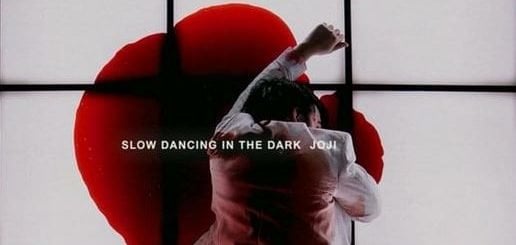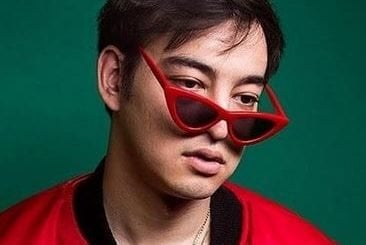NO FUN by Joji Lyrics Meaning – An Ode to Isolation in a Hyper-Connected World
Lyrics
Yeah, all my friends no fun
Fuck my friends, they’re gone
They all left one by one
And now that summer’s done, they don’t need no more fun
Ya, I drive around on my own
I’m rich, but my AC broke
Don’t check no mail, no phone
And I tell them I’m not home
And I keep to myself
Fuck with no one else
And I know it’s my fault but I don’t care
And I keep to myself
Who are you to pretend?
And I know it’s my fault
It will never end
Yeah, all my friends no fun
Yeah, all my friends no fun
I drive around on my own
Yeah, all my friends no fun
Yeah, all my friends no fun
Yeah, all my friends no fun
All they do is nothin’
Yeah, all my friends no-
(No fun, no fun
No fun, no fun)
Ya, I can’t get no sleep
I look so good in green
I run, I run, I run (I run, I run)
And I don’t have no more dreams (ask me please)
I drive around on my own
I feel dead, but I feel my bones (my bones)
I hide out on my throne (my throne)
Open up, now my cover’s blown
Yeah, now my covers blown
Yeah, now my covers blown
Oh, now my covers blown
Oh, now my covers
Yeah, all my friends no fun
Yeah, all my friends no fun
I drive around on my own
Yeah, all my friends no fu-
Yeah, all my friends no fun
Yeah, all my friends no fun
I drive around on my own
Yeah, all my friends no fun
Yeah, all my friends no fun
Yeah, all my friends no fun
All they do is sung
Yeah, all my friends no-
No fun, no fun, no-
No fun, no fun
No fun, no fun
No fun, no fun
No fun, no fun
No fun, no fun
No fun, no fun
No fun, no fun
In a digital epoch where connectivity is deemed ubiquitous and friendships are often measured by the frequency of interactions on social platforms, Joji’s ‘NO FUN’ stands out as a surrogate anthem for the modern recluse. The song, nestled within his illustrious 2018 album ‘BALLADS 1’, taps deep into the zeitgeist of the millennial malaise, capturing the essence of disconnection amid a sea of supposed social networks.
Behind the seemingly straightforward chorus ‘Yeah, all my friends no fun,’ lies a layered commentary on the ephemeral nature of relationships, the paradox of loneliness in the social media age, and the internal struggle with personal fulfillment. Joji, with his melancholic melodies and brooding lyrics, instills an aural landscape that resonates with those feeling the chill of isolation despite the warmth of the crowd.
The Summer’s End: A Metaphor for Fading Friendships
Joji laments the loss of connection with friends who ‘left one by one’ as ‘summer’s done.’ This seasonal reference adds an emotional depth that transcends the literal sense; summer, depicted as the zenith of social gatherings and fun, may as well represent the period in life when relationships flourish. Its conclusion symbolizes how friendships can wither just as the leaves fall, portraying a somber realization that for some, companionship is as fleeting as the changing of seasons.
The song’s narrative doesn’t just stop at the acknowledgment of disconnection but cuts deeper, hinting at an apathy that comes from the discovery. There’s an almost masochistic acceptance in the fact that this abandonment doesn’t alter his solitary rituals: he ‘drives around on [his] own,’ both literally in his car, and metaphorically through life.
Material Riches vs. Emotional Bankruptcy
A potent irony seeps through the lines ‘I’m rich, but my AC broke.’ Here, Joji touches upon the disparities between material wealth and emotional satisfaction, suggesting that the trappings of success and comfort do not always correlate with a fulfilled heart. It’s a quintessential millennial dilemma where the ownership of objects cannot remedy the void of genuine human connection.
The wealth that once promised freedom and joy becomes inconsequential, highlighted by the broken air conditioner—a broken piece of his otherwise affluent life serves as a symbol for the larger disrepair in his interpersonal world.
The Anthem of a Self-Inflicted Solitude
Interestingly, Joji takes ownership of his solitude. He acknowledges, ‘And I know it’s my fault but I don’t care,’ a raw and confrontational confession that he may be the architect of his own isolation. There’s both a sense of self-awareness and an adamance to remain unapologetic about the life he leads, perhaps as a defense mechanism or an acceptance of his intrinsic nature.
His defiance is layered with a resignation to continuity: ‘It will never end.’ It’s a bleak prospect that suggests a cycle of solitariness that he’s neither willing nor able to break. The recognition doesn’t come with a plan for change but rather a silent agreement to continue as is.
Memorable Lines that Echo the Hollow Echo of the Self
‘I look so good in green’ and ‘I feel dead, but I feel my bones’ are inscriptions from Joji’s lyricism that starkly illustrate his contradictory states of being. It’s a confluence of vanity, vitality, and visceral existence, and a reminder that even in the throes of introspection and detachment, self-awareness and inner truths persist.
These phrases convey the emotional intricacy of ‘NO FUN,’ painting a picture of an individual who is painfully attuned to their own existence, even when that existence is marked by the numbness of life’s repetitive and unfulfilled rhythms.
The Unspoken Melancholy in the Monotony of ‘No Fun’
The monotonous repetition of ‘no fun’ throughout the track serves to underscore a larger hidden meaning: the anhedonia that permeates not just friendships that have drifted, but the ennui of life itself when lived in seclusion. Joji’s repetitive refrain becomes a mantra for the disenchanted, caught between the desire for solitude and the undeniable human need for connection.
It’s a compelling narrative about the decline of emotional expression and experience in a world consumed by performative happiness and superficial interactions. Joji’s ‘NO FUN’ is more than a song; it’s a social commentary, a personal outpouring, and a culturally reflective piece that speaks to the silent struggles that many face but few voice.








